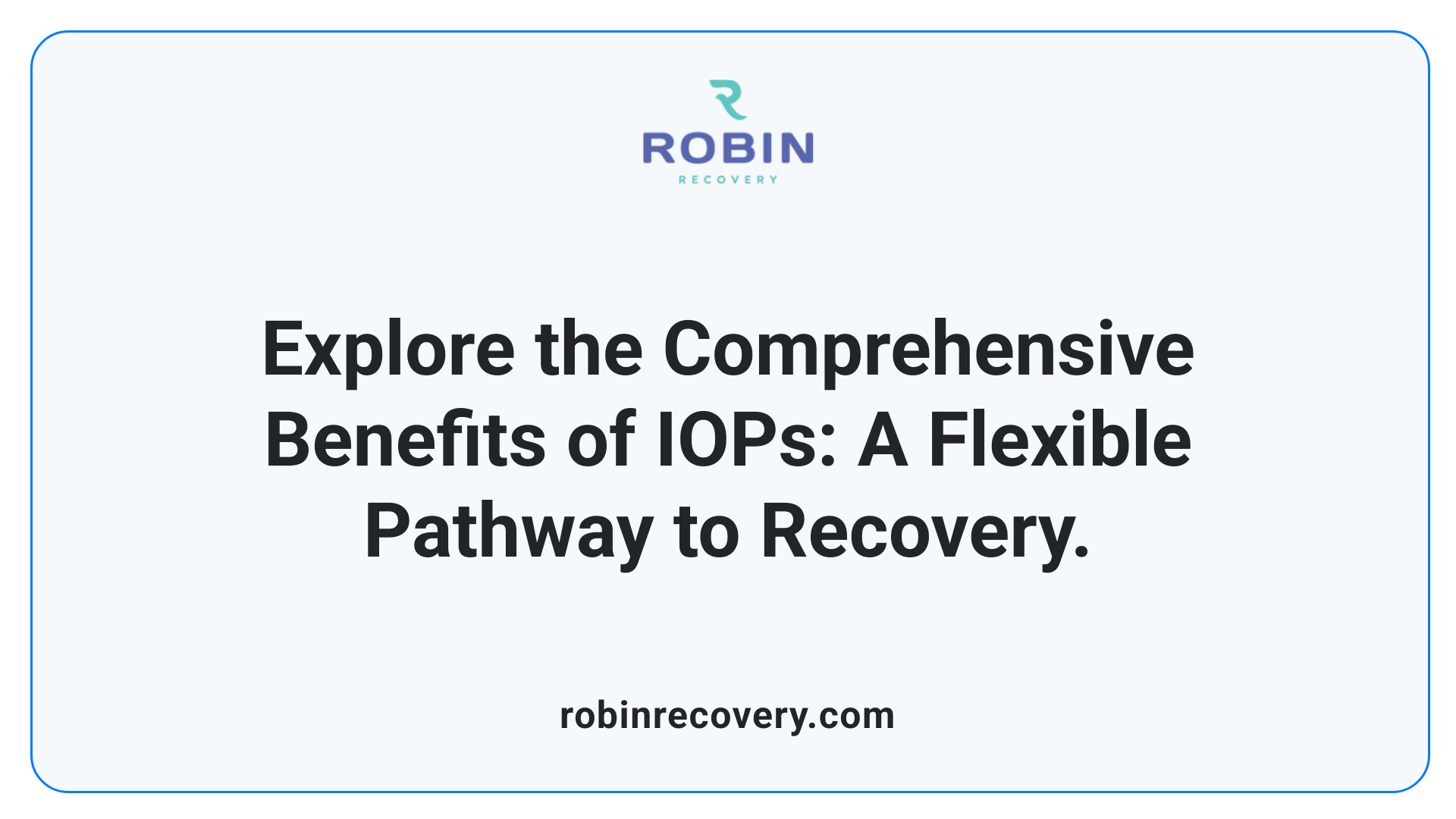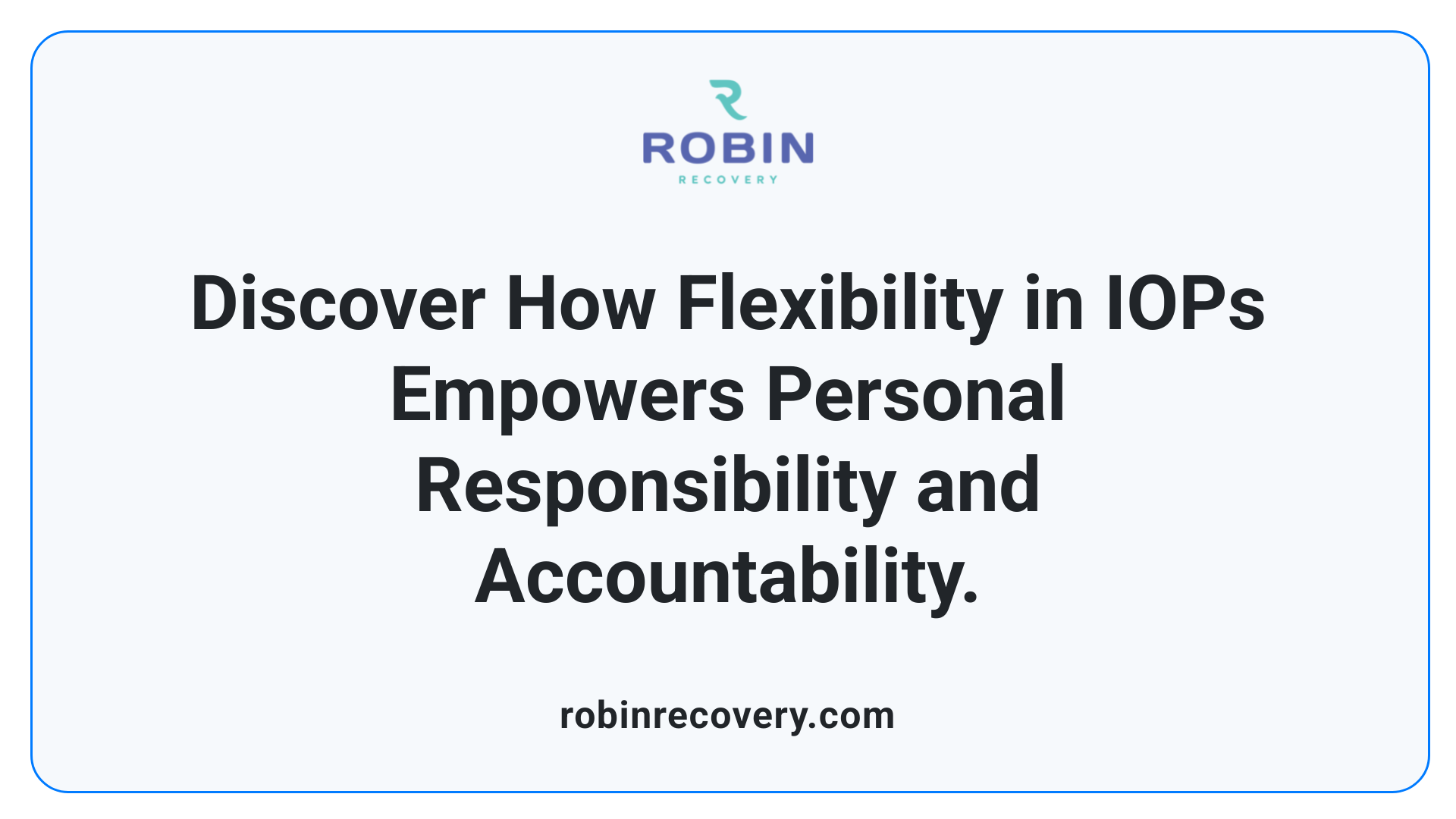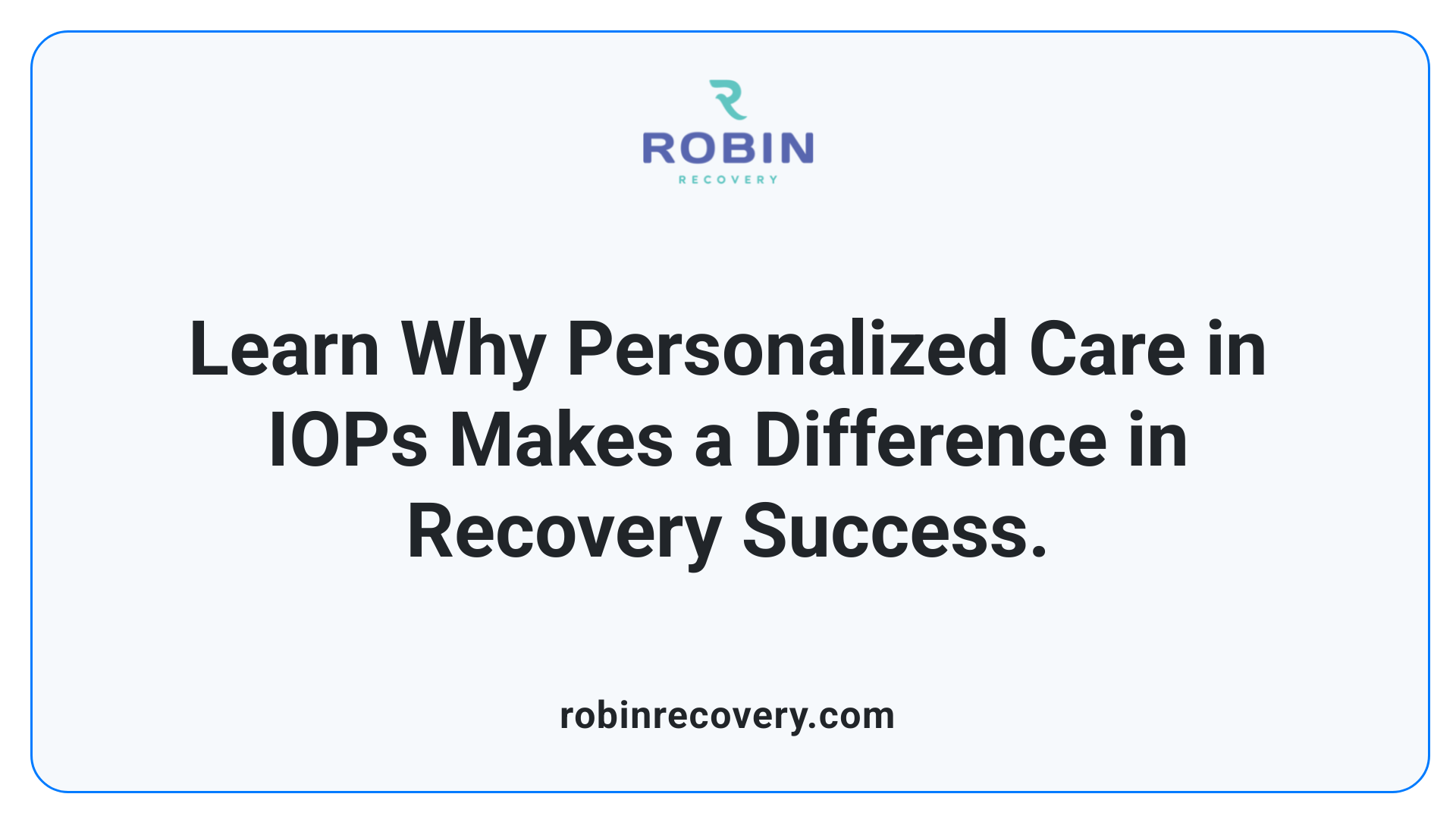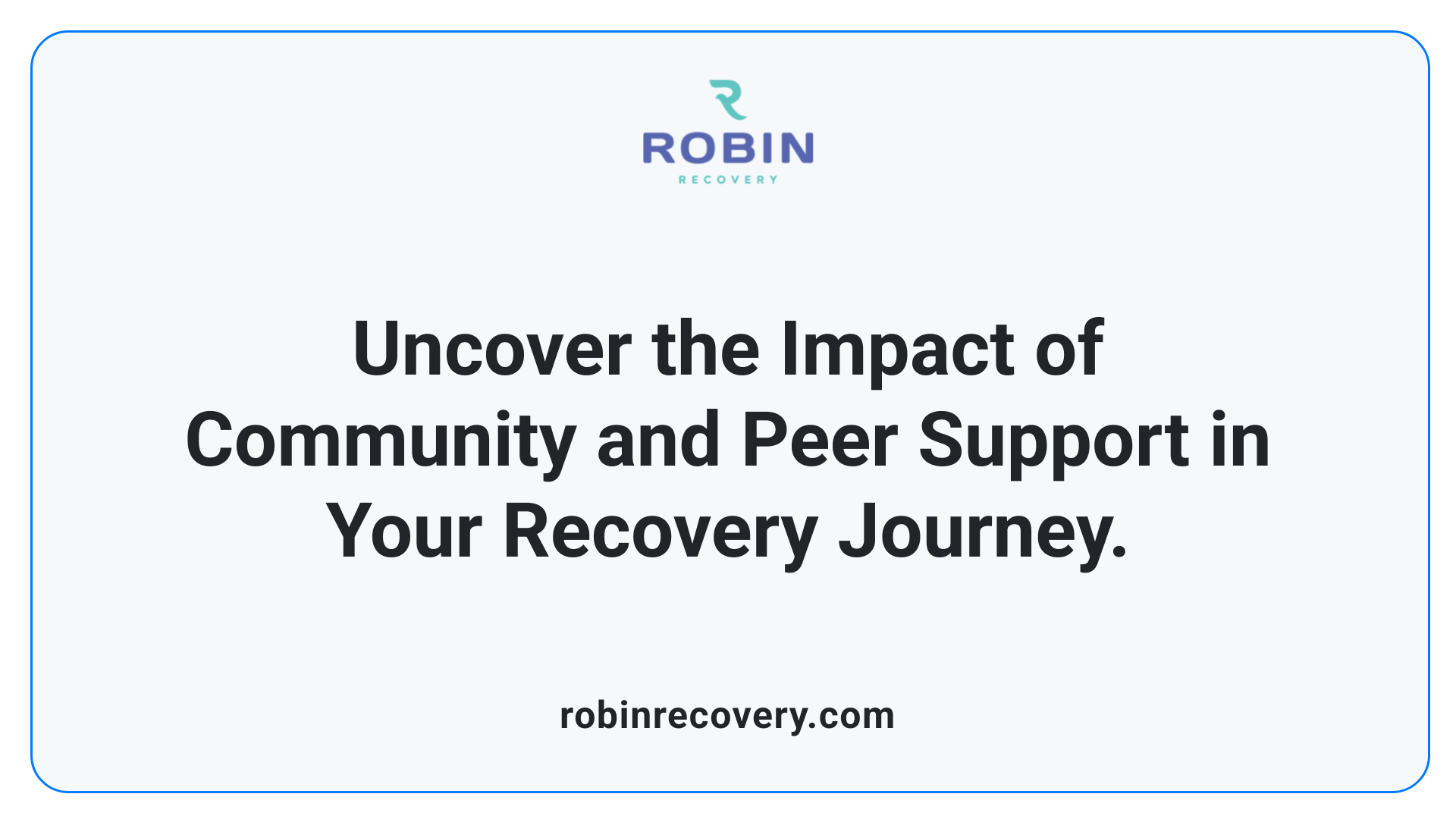The Importance of Flexibility in Intensive Outpatient Programs

Balancing Flexibility and Structured Care in IOPs
Intensive Outpatient Programs (IOPs) have become a cornerstone for treating mental health and substance use disorders by offering flexible treatment options that bridge the gap between inpatient and traditional outpatient therapy. These programs provide structured therapeutic interventions while allowing patients to maintain daily responsibilities, making them an ideal choice for many in recovery. This article explores the multifaceted role of flexibility in IOPs and how it enhances treatment outcomes and personal recovery journeys.
Understanding the Structure and Benefits of IOPs

What are the benefits of Intensive Outpatient Programs (IOPs)?
Intensive Outpatient Programs (IOPs) offer a range of benefits for individuals facing substance use disorders. Notably, these programs provide flexible treatment options that allow patients to balance their daily responsibilities with the need for effective care.
Research indicates that IOPs show high levels of efficacy, with studies demonstrating significant reductions in drug and alcohol use comparable to inpatient services. They typically require a minimum of nine hours of treatment per week, which helps facilitate psychosocial adjustment and ongoing support. The structured nature of IOPs equips participants with essential relapse prevention strategies and coping mechanisms, thereby enhancing their chances for long-term recovery.
Benefits of IOPs Key Features Impact on Recovery Flexibility Allows for scheduling around work/school Minimizes disruption to personal life Structured Environment Structured sessions, including group therapy Promotes accountability and communal healing Tailored Treatment Customized plans based on individual needs Ensures relevant support in recovery Holistic Approach Addresses both symptoms and underlying causes Facilitates comprehensive healing process
Participants in IOPs benefit from a supportive community, sharing experiences that foster empathy and enhance the treatment journey. Ultimately, IOPs are designed for effective integration of therapy into daily life, thus paving a pathway toward lasting recovery.
Flexibility: A Key to Effective Recovery

Comparison of IOPs and inpatient treatment
Intensive Outpatient Programs (IOPs) present a flexible alternative to traditional inpatient treatment by allowing individuals to receive intensive therapy while managing daily responsibilities. Unlike inpatient programs, which require a complete immersion in treatment within a residential setting, IOPs enable participants to live at home, attend work or school, and maintain their personal relationships. This structure is particularly advantageous during the transition from inpatient care, where individuals can practice coping strategies in real-world environments, reinforcing their newly acquired skills.
IOPs typically require patients to attend therapy sessions for at least ten hours a week, providing a balanced framework that combines structured support with the independence to navigate daily life. This adaptability helps participants remain accountable for their recovery while fostering a sense of normalcy as they integrate therapeutic practices into their routines.
Role of flexibility in treatment efficacy
Flexibility enhances the effectiveness of IOPs by promoting continuity of care and personal responsibility. Participants are more likely to stay engaged in their treatment when they can schedule sessions around work or family obligations. This level of customization not only reduces the stress associated with rigid treatment schedules but also allows for individualized care tailored to their specific needs.
Additionally, IOPs encourage community and connection through group therapy sessions, which create an environment of shared experience and mutual support. As individuals practice coping skills collaboratively within these sessions, they naturally reinforce their learning and develop resilience in facing daily challenges. Overall, the flexible nature of IOPs is vital for maintaining motivation and commitment to recovery, which is crucial for long-term success.
Tailoring Treatment to Individual Needs

Why should someone consider an IOP for mental health or substance abuse issues?
Someone should consider an Intensive Outpatient Program (IOP) for mental health or substance abuse issues if they are experiencing mild to moderate symptoms and do not require 24-hour supervision. IOPs provide a structured treatment environment, including therapy sessions, group counseling, and educational workshops, while allowing individuals to maintain their daily responsibilities at home.
They are particularly beneficial for those transitioning from inpatient care or for individuals whose commitments make residential treatment impractical. Family involvement is often encouraged, enhancing the support system for participants.
Additionally, IOPs offer personalized treatment plans and may include various therapeutic approaches, ensuring a comprehensive and tailored recovery experience. This adaptability means that treatment can evolve with each participant's changing needs, effectively addressing unique challenges they may face during their recovery journey.
The Importance of Personalized Care in IOPs
Personalized care is a cornerstone of IOPs. Each participant’s treatment plan is tailored specifically to their needs and preferences. This ensures that the therapy provided is relevant and effective. By adapting treatments, IOPs address both symptoms and underlying issues, allowing for more meaningful progress.
Adaptability in IOPs
Flexibility is a key feature of IOPs, making them suitable for individuals balancing other responsibilities like work or family care. IOPs typically require at least ten hours of attendance per week across several sessions, allowing participants to manage their recovery while integrating therapeutic strategies into daily life.
This balance helps maintain consistency in treatment attendance, which is crucial for long-term success. Moreover, by culminating diverse treatment options, IOPs prevent feelings of stagnation, enabling individuals to explore various therapeutic modalities as their recovery paths evolve.
Adapting Programs for Diverse Lifestyles

How do flexible IOPs facilitate recovery while allowing individuals to manage daily responsibilities?
Flexible Intensive Outpatient Programs (IOPs) offer a bridge between structured therapy and everyday life, allowing individuals to engage in their recovery while managing personal commitments. These programs provide adaptable scheduling options, including evening and weekend sessions, making it feasible for patients to attend therapy without compromising their work or educational responsibilities.
The ability to maintain a routine at home adds a layer of stability that is vital in the recovery process. Patients in IOPs can apply the coping strategies learned during sessions immediately in their daily lives, reinforcing their skills as they navigate real-life challenges. This combination of flexibility, support, and the application of therapeutic strategies not only helps individuals maintain their responsibilities but also decreases feelings of stress that may arise from balancing treatment and personal obligations.
Moreover, structured support in IOPs, such as group therapy and family counseling, enhances the healing environment. By fostering connections with peers and loved ones, individuals experience shared encouragement, crucial for motivation and accountability. This holistic approach ensures that individuals are empowered to take ownership of their recovery while still fulfilling their daily roles.
Integration of Therapy and Daily Life
Why is it advantageous for IOP participants to live at home and maintain daily routines during treatment?
Living at home while participating in an Intensive Outpatient Program (IOP) allows individuals to maintain a sense of normalcy and comfort. This arrangement provides a psychologically supportive environment that can enhance therapeutic outcomes.
Through this home-based approach, individuals can practice and apply coping skills and therapeutic strategies in real-world scenarios immediately after learning them. This immediate application is particularly beneficial for managing triggers and stressors effectively.
Additionally, staying at home allows individuals to sustain involvement with family and community support networks. This connection can significantly contribute to emotional stability and encourage ongoing engagement in the recovery process. In a familiar environment, patients may feel more comfortable discussing their challenges, reinforcing the support they receive during therapy sessions.
Application of coping skills
In IOPs, the structured format encourages patients to learn and practice various coping skills such as stress management and emotional regulation. For instance, they can implement mindfulness techniques in their daily routines, thereby reinforcing the skills they acquire in therapy.
Moreover, utilizing technologies such as telehealth allows patients to access virtual support groups and communities, further enhancing their coping strategies outside of scheduled sessions. This practice not only solidifies their learning but also fosters a sense of community, crucial for sustained recovery.
Support systems in IOPs
Support systems are a vital component of IOPs. Group therapy sessions provide a safe space for patients to share experiences and challenges with peers who understand their struggles. This mutual sharing fosters connections that often lead to lasting friendships and support networks.
Furthermore, IOPs often encourage family involvement in the therapeutic process. Family therapy sessions help improve communication and understanding, reinforcing the emotional bonds necessary for recovery. This combination of peer and family support helps build a solid foundation for long-term sobriety.
Community Support and Engagement

What role does community and peer support play in flexible IOPs?
Community and peer support are vital components of flexible Intensive Outpatient Programs (IOPs). They create a solid foundation for accountability, shared experiences, and encouragement, essential for effective recovery.
Group therapy sessions, a hallmark of IOPs, allow individuals to engage with peers facing similar challenges. This interaction promotes mutual understanding and significantly reduces feelings of isolation. In these settings, participants often share personal experiences and coping strategies, fostering a sense of belonging and empathy among each other.
The supportive community formed within IOPs not only reinforces the therapeutic process but also enhances emotional resilience. Research indicates that individuals who actively participate in group therapy and engage with their peers tend to have better recovery outcomes, as they feel less alone in their journey.
Additionally, community support networks within IOPs encourage open communication and trust among participants, vital for addressing personal issues and facilitating growth. Overall, these connections cultivate a nurturing environment, integral for long-term recovery success, enabling individuals to draw strength from collective healing.
Virtual IOPs: Expanding Access and Engagement
How have virtual IOPs expanded accessibility to treatment?
Virtual Intensive Outpatient Programs (IOPs) have transformed the landscape of addiction and mental health treatment by leveraging technology to deliver therapy remotely. This innovation is especially crucial for individuals living in rural or underserved regions, as it eliminates geographical barriers that often hinder access to care.
With virtual IOPs, patients can partake in therapy sessions from the comfort of their homes, allowing for greater flexibility in scheduling. This means patients can select session times that fit their work or personal commitments, effectively integrating therapy into their daily routines. Such adaptability plays a critical role in reducing disruptions to their lives, which can be particularly important during recovery.
Benefits of virtual therapy
Advanced digital platforms utilized in virtual IOPs ensure secure and HIPAA-compliant communication, safeguarding patient privacy and confidentiality. Furthermore, the incorporation of digital therapeutic tools, including mobile apps and online journals, keeps patients engaged between sessions, allowing them to reinforce skills learned during therapy.
Patients also benefit from virtual support communities, which foster emotional support and peer engagement in a remote setting. By providing both structured care and a sense of community, virtual IOPs empower individuals to take charge of their recovery journey while benefiting from continuous support.
Emphasizing the Role of Flexibility in Recovery
The flexibility inherent in Intensive Outpatient Programs (IOPs) plays a crucial role in the success of addiction and mental health recovery. By offering a structured yet adaptable treatment pathway, IOPs ensure that individuals can manage their personal and professional responsibilities while engaging in comprehensive therapeutic care. This adaptability not only promotes better treatment adherence but also enables patients to practice coping skills in real-time, fostering resilience and self-reliance. As virtual IOPs continue to expand, this model of care becomes even more accessible, allowing more people to benefit from its tailored approach. Ultimately, the flexibility of IOPs represents a critical component in supporting personalized care and long-term recovery.
References
- IOP Programs: How Flexibility in Recovery Can Help | Rehab
- The Benefits of Flexible IOPs | Hollywood, CA - CAST Centers
- 5 Benefits of Outpatient: Real Examples of Flexibility and Community
- Exploring the Flexibility of Intensive Outpatient Programs
- A Guide to Adult Intensive Outpatient Programs (IOP)
- IOP Programs Offer Flexibility in Recovery | Addiction Treatment
- 5 Benefits of an Intensive Outpatient Program (IOP) | PrairieCare
- How Do Intensive Outpatient Programs (IOPs) Work?
- Why Is Flexibility Important During Treatment?
- How Outpatient Programs Provide Flexibility in Addiction Recovery ...
